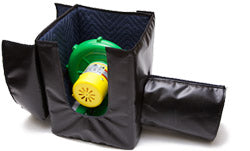Duck Season (2006) screened at Socrates Sculpture Park Outdoor Cinema Festival

In the summer of 2008, the Socrates Sculpture Park Outdoor Cinema festival in New York City featured artistic indie films in their outdoor movie events.
The Socrates Outdoor Film series is known for featuring some of the lesser-known, yet high-quality films such as Duck Season, a critically acclaimed film from Mexico. The following is a review of Duck Season featured in New York Magazine. You can read the original blog post about the outdoor movie event here.
The low-budget Mexican charmer Duck Season centers on two lonely 14-year-old boys who spend every Sunday eating junk food and playing Xbox games by themselves in a smallish apartment in a faceless housing development.
In movie terms, this is a limited, potentially suffocating setting, and the black-and-white film stock does little to liven it up. Yet in the hands of the writer-director, Fernando Eimbcke, such constricted space is infinitely subdividable.
Now we're watching the best friends the taller and gawkier Flama (Daniel Miranda) and the curly-haired Moko (Diego Cataño) as they bang on their controls and bombard each other with expletives; now we're behind their heads, eyeballing the action figures that blast one another into porridge. Now we're riveted by side-by-side tumblers, as Flama serially fills each with Coke while Moko dips his finger into the foam to prevent spilloversa soda-pop-de-deux.
The space is remarkably porous and unexpectedly accommodating to intruders: a 16-year-old neighbor, Rita (Danny Perea), who asks to use the oven to bake a cake, and a pizza deliveryman, Ulises (Enrique Arreola), who gets locked with the boys in a tug-of-war over payment. (He arrives eleven seconds later than the company guarantees Flama and Moko open the door holding a stopwatch.)
It's all rather tense for a while. Ulises waits mulishly for his money; Rita's cake burns; the boys' indifference is oppressive. But what gradually descends over these fourand over the audience, too is about the loveliest, most inspiring torpor imaginable.
The style and tempo deadpan exchanges separated by black evokes Jim Jarmusch's Stranger Than Paradise, and the vacant expression of the boys recalls the nerdy anomie of this generation's peculiar teen anthem, Napoleon Dynamite. There's even a touch of The Breakfast Club in the way the characters finally connect. But I found Duck Season easier to love than any of those filmsless visually straitjacketed than the first two, less grandiosely romantic than the third.
The faces are beautifully fluid, the boys in that no-man's-land between childhood and full-bore puberty; the girl with more awareness than both put together but limited in how she can apply it; and the pizza guy on the brink of discarding his youthful dreams his mother having told him that opportunities in life are like bullets in a shotgun and that he has already fired his.
The imminent divorce of Flama's parents gives the movie a strong emotional undertow; the very apartment in which the film takes place is a battlefield. One possession in particular an unremarkable painting of a duck taking flight is the source of a bitter custody dispute, and here becomes an object of mystical contemplation.
Duck Season is a hangout movie, and not to be bruised with superlatives. The black and white isn't meant to be show-offy, as in something like Good Night, and Good Luck; Eimbcke seems to have chosen this palette to make it harder for us to interpret what we see. He makes brilliant use of his budgetary limitations.
Or it might be that his limitations mirror the characters', and his imaginative leaps suggest a way out for them, too. The fullness of Duck Season is in direct proportion to its smallness; its modesty makes it bloom.
Source: "Los Space Invaders" By David Edelstein -New York Magazine.
Read full review at: http://nymag.com/movies/reviews/16312/





